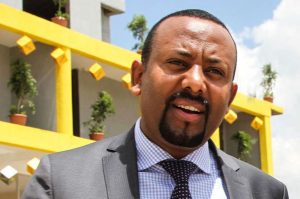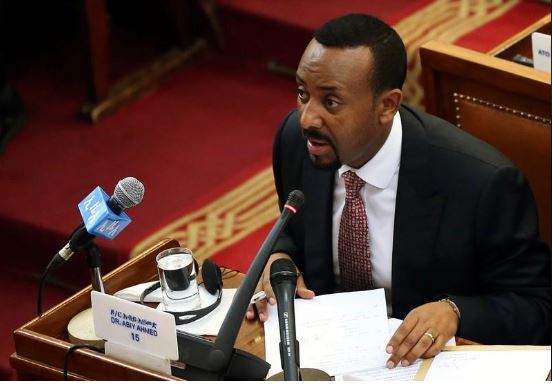
Photographer: Samuel Gebru/AFP via Gett Images
Ethiopia must pursue multiparty democracy, the prime minister’s chief of staff said on Sunday in what could be the latest in a series of momentous changes sweeping the country.
The country allows competing parties but all parliamentary seats are held by the Ethiopian People’s Revolutionary Democratic Front, which has maintained tight control in the country of 100 million people since it fought its way to power in 1991.
The ruling coalition has also presided over an economy that has grown faster than any other in sub-Saharan Africa over the past decade.
Abiy Ahmed became prime minister in April and since then the government has instituted reforms including releasing political prisoners, diluting state control of the economy and making peace with northern neighbour Eritrea.
The government this month lifted a ban on opposition groups that were considered terrorist groups. Any further steps to strengthen the country’s democracy would likely make elections due in 2020 more competitive. [L8N1UG1ZZ].
Abiy was meeting national and regional parties on Sunday and his chief of staff, Fitsum Arega, said in a tweet:
“PM Abiy concluded: Given our current politics, there is no option except pursuing a multiparty democracy supported by strong institutions that respect human rights and rule of law.”
He said the parties appreciated Abiy’s political reforms and also wanted changes to electoral laws.
The coalition swept the 2015 vote but the opposition was weakened by restrictive laws and what human rights group described as repression. Security forces killed hundreds of people in three years of unrest since then.
The opposition said it was cheated of victory in an election in 2005, after which 193 protesters and seven policeman were killed in riots.
Writing by Omar Mohammed; Editing by Matthew Mpoke Bigg

